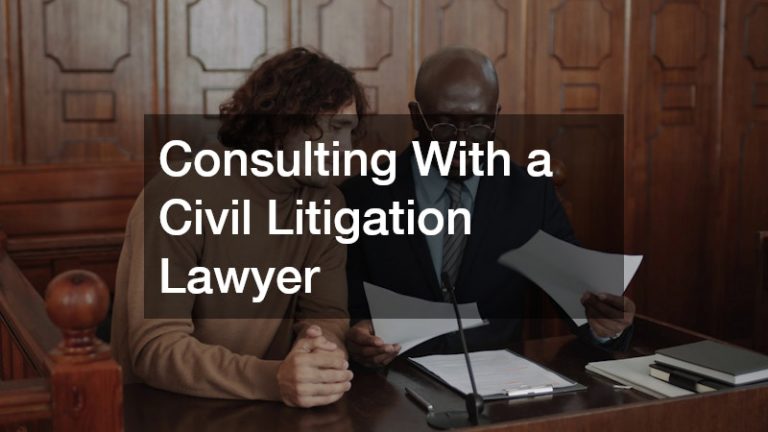

Bail bondsmen are a crucial part of the criminal justice system. They assist individuals with posting bail and ensuring their release from custody. These licensed professionals serve as intermediaries between the defendants seeking release from jail and the court system. By posting a surety bail bond involving a contractual agreement between the bondsman, the court, and the defendant, the bondsman guarantees the defendant’s appearance at future court hearings.

While a traditional bail bond is typically associated with an arrest, the concept of a no arrest bond or non arrest bond is becoming increasingly popular in certain situations. Such bonds allow individuals to secure their release without being arrested; this is an alternative to pre-trial detention for certain offenses. Some common bail-related questions include, ‘Can you bail someone out of juvie?’ and ‘Can you post bail on the weekend?’ These are questions that bail bondsmen can answer. To become one, you must familiarize yourself with the specific procedures for posting bail in various circumstances. Becoming a bail bondsman in Indiana involves some steps, including licensing requirements and understanding the legal framework surrounding bail bonds. A comprehensive understanding of the role and responsibilities of a bail bondsman will provide you with the guidance to get started on this career path.

You should know what a bail bond company can do for you before you ever find yourself actually face-to-face with the reality of dealing with that company. It is important to look at this because you need to know things such as how much is a non arrest bond and the like. After all, most of us don’t have to deal with a no arrest bond at any point in time, and that is a big reason why the non arrest bond is something that people have questions about all the time.

Another thing that people want to know is “what happens if I get arrested while out on bail?”. This is a fair question as well, and it is something that you should learn more about in case you are ever in this situation. You should make sure you don’t do anything that might end up with you in that situation.
Look at what you can do to get yourself out on bail in the event that you are arrested for a crime of any magnitude. You don’t want to spend time in jail for any period of time for a crime that you might not even have committed. Therefore, you should take the time to learn about the bond options that are available to you.
To become an agent or licensed bondsman, you must meet specific requirements. You can learn them from your state’s Department of Insurance or regulatory agency. As a bail bond agency, you need to be physically able to provide the proper services for a client. You will also need to take and pass a state-administered examination. The test consists of written and practical portions.

Most people may not understand what it takes to be a successful bail bond agency. It will help to learn more about the bail bill of rights. One may seek to know, are bail bonds refundable? To get a bond refund, you must follow the rules set by your probation officer or while out on your recognizance (ROR). It will also help to know that the assault causes bodily injury and family violence bond amounts can differ.
Assault is punishable by fines, community service, or months in jail. Such cases can have a high bail bond percentage of the gross income. The actual amount will depend upon your county, bond agent, and court jurisdiction. Bail bonding agencies must abide by several state laws and federal courts’ constitutions and regulations. The Bill of Rights defines the client’s rights and responsibilities of the bail bond agency and their bondsmen.
You have to admit that there is an opportunity to be had in the American bail system. From providing a $500 bond that someone can use to get themselves out of a tough bind to making a bail bond payment that is much larger on behalf of someone charged with a serious crime, there is money to be made.
One of the things that everyone who is considering getting into the business should think about is after paying bond how long does it take to release? This is a critical question because there are many people who could potentially make their bail bonds business much more successful than the competition if they can rush those payments out to people as needed.
As soon as someone has an affidavit of incarceration, it is possible to get the bail bond payment out to them to get them sprung from jail so they can fight their case from home.
It is clearly a competitive business with plenty of people vying for all of the money that comes out of this type of work, but it is something that is worthy of consideration if you are the type of person who wants to make money and help people at the same time.
There is a unique industry that revolves around the criminal justice system that doesn’t get enough attention at all times, and that is the field of bail bond services. These companies are all about helping people get out of jail so they can fight their case from the comfort of their own homes.
If you need a how do jail bonds work example, you will want to think of the person who receives bail without conditions for a small offense that they were picked up for. They can pay the bond set by a judge rather than sit in jail until their case is called up by the court. Obviously, most people would greatly prefer to work on their case from the comfort of their own home instead of having to wait in jail for the court to get around to them.
Can you pay a bond without going to jail? You will probably be in a holding cell for at least some period of time, but you can get out rather quickly if you post bail. The only exception to this rule would be if you need to look into the held without bail meaning. If that happens, it means that you are not permitted bail because you are being charged with a crime that is more serious in nature and bail has been denied.
If someone is arrested, they might be offered bail. The bailout of jail definition is essential that bail is money put up by the defendant to assure the court that they will come back on their trial date. If they don’t show up, they lose the bail pending to be returned to them. Bail is usually very expensive, so people have a lot of incentive to show back up. So they’re usually eager to fill out bail paperwork and get out of jail.
However, since bail is so expensive, many people can’t afford it. In this case, they might work with a bonding company. A bonding company will post bailout bail bonds on their behalf, loaning them the money to get out of jail. The client will then pay the company a fee for the service, usually a percentage of the bail amount. While this ends up being more expensive than posting bail themselves, it gives people without assets a chance to get out of jail as they wait for their court date to arrive.
When a person in the United States is arrested, they are detained until a hearing during which the judge advises them of the charges and sets bail. Read on for more information about how the bail system works in the United States.

What does a bail bond agent do?
Courts often set bail in extremely high amounts that make it difficult for arrested individuals to post bond. A bail bond agent can help by posting part of the bond after they have been provided with a percentage of the total.
Can people get bail during trial?
Bond is set pre-trial. As long as the individual who is out on bond returns to all scheduled court dates doesn’t commit any further crimes, or violate the terms of their release, there’s no reason for a court to revoke bond before trial.
What does bail extended meaning refer to?
Extended bail is not a term that is used in the United States.
What happens during bail hearing cases?
There’s no such thing as a bail hearing case. In legal terms, a case refers to the entirety of the legal proceedings linked to specific information or indictment.
Is bail in a nonbailable offense possible?
No. If a statute specifically prohibits judges from setting bail for individuals accused of a specific offense, there’s no way around that law.
All bail laws vary from one state to another: the bail codes are regulated by the state. It may be challenging to obtain the right details on bail considering the varying concepts and rules that govern the process of getting bail during the trial.
After arrest, the prisoners are taken to bail hearing cases to secure freedom before trial. Bail judgments are followed by bail posting granting the arrested person freedom.
Some instances allow granting bail in nonbailable offenses: one of the scenarios is the lack of adequate proof that you committed the offense. You may be granted bail on such offenses if the offense committed is not punishable by a lifelong sentence or by death.
Bail acts as security paid in cash, visa, or MasterCard. The money posted as bail is refunded to the person that deposited it after the judge makes the final ruling in court unless otherwise stated by the judge.
Letters to notify the depositor about the reasons for not receiving bail are sent by the court. Bail bonds last for only one year, with the extension of the period attracting collection of extra premiums. The bail agent’s cosigner incurs the additional costs in the transaction like the posting charges, travel expenses, and calls.
The bail bond industry in the state of Indiana is commanded by the Indiana Department of Insurance. When a person has been arrested, there are four methods the person may be released from incarceration prior to trial:
- The first one requires no bail, it is based on a person’s own recognizance.
- The defendant providing a set, cash bail for release is the second.
- A surety bail provided by a third party, such as family, friends, or a bail bondsman is third.
- Finally, last is a deposit bail which pays a partial payment of the requested bail amount.
- If you have ever wondered how to become a bail bondsman in Indiana, this article is going to tell you how.
Indiana bail bondsmen have articulated a robust judgment regarding the current system of deposit bail making 10 percent a requirement. Deposit bail doesn’t have any incentives for the defendant to appear for their court date. Dissimilar to the surety bail which requires a co-signer or some form of collateral. There is a 97 percent rate of appearance for defendants released on bail. Yet only 60 percent will actually return for their court date.
Indiana bail bonding works in this manner. The bond permits a person who has been arrested to be released from jail until the set court date. There is a $5.00 Death Benefit Fee attached to the final cost of the bond. Indiana allows bonds to be paid via online payment.
Making Yourself Eligible to Become a Bail Bondman in Indiana

The first step to learning how to become a bail bondsman in Indiana is to meet the eligibility requirements. To be eligible to become a bail bondsman in Indiana, the state Department of Insurance has set the following requirements:
- The first, most foremost eligibility requirement is age. A prospective bail bondsman must be at least 18 years of age.
- Before an application is submitted you must have one year’s residency in Indiana.
- No disqualifying felony convictions, or a ten-year lapse since the last disqualifying felony conviction. Or, there have been five years since the last misdemeanor conviction.
- Have the money available to pay the $650 license fee and $100 examination fee.
- Be capable of passing the Commissioner’s examination
- Be able to supply a current credit report
- Complete the 12-hour licensing course and show proof of its completion
- Undergo a Thorough Educational and Training Program
Something you need to know is that a bail bonds service is essentially an occupation in financial management. Although there is no lawful requirement for a bail bondsman to have a college degree it doesn’t hurt. In fact, many bail bondsmen do possess a minimum Associate’s degree in business administration, law, finance, or economics.
In addition, a college degree does make preparation to take the exam for a licensed bail bondsman much easier.
There is a 12-hour course bail bondsman candidates may enroll in for pre-licensing. There are several bail companies and academies throughout the state that offer this course. However, owning the academic savvy to enable you to master this demanding exam comes from having a college education.
Some of the instruction included in this pre-licensing course is:
-
- Department of Insurance
- Regulations and licensing
- Important descriptions
- Basics about bail bonds
- Procedures and practices regarding bail and recovery agents
- Principles of law enforcement
- Passing the Exam to be an Indiana Bondsman
This is another step in how to become a bail bondsman in Indiana. That is to successfully take the exam for a bail bondsman. It consists of 60 multiple choice questions, and in order to pass, you must get 70 percent or better. This exam costs $100 and can be paid for with a credit or bank debit card.
A bail bondsman applicant may be eligible to take the exam as much as needed, six months after course completion.
Applying for your License
Once you have passed the exam there is one more step. If you want to know how to become a bail bondsman in Indiana, you must apply for a license. This is the process to follow when applying for a license as a bail bondsman in Indiana:
-
- Submit your application to be an Indiana Bail Agent
- Pay Indiana Department of Insurance the $650 fee
- Provide your credit report
- Get fingerprints done
- Show proof of appropriate pre-licensing course completion
- Show verification of what grade you earned on the exam
Once you are granted a bail agent license it is good for two years. You must re-apply and pay a $600 fee to renew your license. In addition, you must complete a six-hour course of continued education.
How Do Bail Bonds Work in Indiana?

There are numerous ways bail can be described. Bail is something the court allows an individual to pay in order to be released from jail prior to trial. Each state has different rules regarding bail, this article will explain Indiana rules.
In the state of Indiana, a defendant may be detained up to 15 days prior to bail being determined. Once the process starts, the judge will set the amount of bail to allow release until the trial date.
Bail Bonds in Federal and State Court
When it comes to federal bail bonds, bondsmen play a different role. Bail bonds in federal court are not acknowledged in the same way they are in state court. The Federal courts use a Signature bond, an unsecured bond that is much like a promissory note. This type of bond requires a responsible third-party sign for it.

What Is the Difference Between a State and Federal Bail Bond?
A state crime is one that is committed within the state the defendant resides in. These crimes originate in the state court system. State crimes are misdemeanor charges, these charges are rated in three categories. Class A, B. and C. Class A misdemeanors are more serious than Class C ones. There are different procedures, limitations, and procedures encompassing the penalties of state-level crimes. State bail bonds are what is needed to get a defendant out of jail when they are charged with a state-level crime.
Federal crimes are those that start in the federal court system. These crimes are normally felonies on the Federal level. There are 7 categories of felonies in Indiana. These are Levels 1-6 and then Murder. A Level 6 felony is often called a “wobbler” and may be lowered to a misdemeanor. The type of bond needed to get a defendant out of jail for a federal crime is called Federal bail bonds.
Bail Bonds Service
When you learn how to become a bail bondsman in Indiana, there are several things you must learn about a bail bonds service.
There are a variety of reasons in the realm of family law that could get a person arrested. Domestic violence is one of them. Domestic violence can be the result of emotional, physical, financial, psychological, and sexual abuse against another person.
In some criminal law cases involving domestic violence, the judge does not grant a bail bond. In cases where this happens, the judge may fear the victim’s life is in danger. Depending on how severe the case also depends on the limits set for bail. A bail bonds service in Indiana works hard to secure a misdemeanor, felony, or surety bond. The bail bondsman does whatever they can, within the law, to assure your release from jail.
Criminal Law Bail Bonds

The biggest concern a person has when they are arrested is how fast they can be released. Once bail has been posted, the defendant is released from jail until the case is finalized in court.
In Indiana, when a person is arrested, they go through the booking process. They are then allowed one phone call. This call is usually to a bail bondsman or close family member who is familiar with the bail bonds service.
One important thing you will learn about how to become a bail bondsman in Indiana is how to handle defendants arrested in criminal law cases. The defendant’s criminal defense attorney is not permitted to post bail for them. Yet, your criminal attorney can request a bail hearing if the defendant has not received notice regarding bail. The law firm the attorney works for will fully explain this procedure to you, the bail agent.
The criminal defense lawyer can request at the bail hearing for the defendant to be released on their own recognizance. If this is not possible, the criminal attorney then debates bail being set at the lowest possible amount. This makes it easier for the defendant to be released from jail until the case is heard and resolved.

In some cases, a violent crime does not allow for bail. Particularly if the defendant has priors on their record.
As an Indiana bail bondsman, you will soon learn you have a lot to learn. In learning how to become a bail bondsman in Indiana there is so much important information. One imperative thing is learning what bail schedules are and how bail amount is determined sans a hearing in court.
Types of Bail in Indiana
Another important thing to learn about how to become a bail bondsman in Indiana is the various types of bail offered. This section will give you a brief explanation of each type of bail in Indiana.
Own Recognizance of OR
This type of bail is considered for a person who has been arrested for a non-violent crime with no priors. When the defendant is released on their OR, they need not post any bail money. The person is given a court date. Failure to appear results in a warrant being issued for their immediate arrest. This person then faces automatic jail time for the duration of their case.
Cash Bond

This type of bail depends on the circumstances surrounding the case as well as the severity of the crime. Following the settlement of the case, the court might demand a full refund of a cash bond. However, if you owe any fees, restitution, or fines, this will be deducted prior to any refund being issued.
Surety Bond
A bail agent is needed to issue this type of bond. When you learn how to become a bail bondsman in Indiana you will learn about this. As a bail agent, you charge 10 percent of the posted bond when a surety bond is posted.
XC Split
This bond is sometimes ordered by the judge. The defendant is refunded the part of the bond they paid in cash. As the bail bondsman, you keep 10 percent of the money paid toward the surety bond.

Percent Bond
Much the same as a surety bond, with the percent bond the defendant pays 10 percent of the total. As long as the defendant owes nothing else, this bond is completely refundable. If this person fails to appear for court, they are ordered to pay the remaining amount of bond.
XR Split
This type of bond incorporates a surety and percentage bond. The bail agent is paid 10 percent of the non-refundable surety bond. The bail bondsman then posts the full amount of that bail’s portion.
Property Bond
This type of bond is used when a defendant’s bond is extremely high. The bondsman uses personal property as collateral to post the person’s bond. You will learn when learning how to become a bail bondsman in Indiana about property bonds. The bail bondsman places a lien on the property of the defendant or their co-signer to serve as a bond for release. As with any other bond, if the defendant fails to show for the court date, the court will seize the property.
Car Accidents and Bail
You will also learn when learning how to become a bail bondsman in Indiana about car accidents and bail. Sometimes a car accident will result in illegal activity, (such as a DWI). When this happens, the person being arrested will be coming to you for bail.



